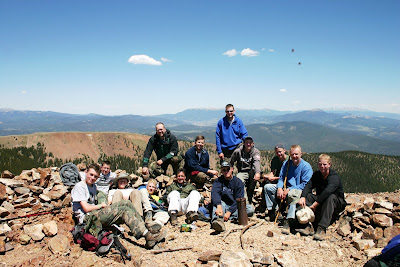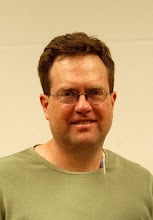
Carpenters, The: "Superstar" - As a teenager, I couldn't really appreciate the Carpenters for what they were, a great pop band with one of the greatest, most distinctive voices in the history of recorded music. (The story of Karen Carpenter is a true American tragedy, especially given the utter preventability of her demise from the secondary effects of anorexia nervosa.) I regard "Superstar" as the epitome of the Carpenters' sound and the sad beauty inherent in Karen's voice.
Cars, The: "Nightspots" - In the late 1970s, the Cars presaged what later came to be known as New Wave. Their quirky sound and Ric Ocasek's offbeat songwriting were just what the post-disco era called for, and "Nightspots," off their Candy-O album, is a roller-coaster that leaves one slightly dizzy, but gratified.
Clapton, Eric: "Mainline Florida" - Clapton has made a lot of great records over the years, but "Mainline Florida," from his 461 Ocean Boulevard album, is simply one of the top two or three guitar riffs in the history of rock 'n' roll; it's so great, in fact, that I can overlook the lack of a killer guitar solo in the song. (Based on Clapton's recent autobiography, it dates to one of his big drinking periods -- no big surprise.)
Cooper, Alice: "No More Mr. Nice Guy" - Great guitar, great lyrics. Alice's original band wasn't exactly a bunch of virtuosos, but they came up with some pretty durable music nonetheless.
Cope, Julian: "Charlotte Anne" - Julian Cope surely rates as one of the weirdest people ever in popular music -- not to mention one of the most narcissistic in his day -- but I love some of his mid-to-late 80s material. "Charlotte Anne," "Trampolene," and "World Shut Your Mouth" are all among my favorite pop songs ever.
Cream: "Badge" - The story is that Eric Clapton mis-read George Harrison's writing, and thus "Bridge" became "Badge" when Cream went to record the song; notwithstanding, it is the "bridge," with that distinctive Leslie/Echoplex sound, that makes the song special.
Creedence Clearwater Revival: "Born On the Bayou" - Creedence purposely sought out a uniquely American "roots" sort of vibe in their music, and to me there is no better example of that sound than "Born On the Bayou"; the distorted, tremolo'ed solo guitar sound makes the song. (A close second would be "Fortunate Son." I'll never forget the first time I saw the film Forrest Gump -- that scene where "Fortunate Son" plays over the helicopter flying Forrest and Bubba to their unit in Vietnam was overpowering.)
Crosby, Stills, Nash & Young: "Woodstock" - CSN&Y recorded many memorable tunes in their early days (I could never connect with their later stuff), but their recording of Joni Mitchell's "Woodstock" had it all -- great tune, great harmonies, and great interplay among the instruments. I'm not a great fan of Neil Young's guitar solos, but the one in this tune works somehow, adding a certain manic quality.
Culture Club: "Do You Really Want to Hurt Me?" - The first time I saw the video for this song on MTV when it was new, I remember saying to myself (about Boy George), "That's either the ugliest guy...or the ugliest girl...I've ever seen!" It's actually a pretty decent tune, much better than the other Culture Club songs I'm familiar with.
 I never really participated in scouting when I was a youngster, despite the fact that the Boy Scouts have always been the "achievement" arm of the LDS church's young men's program. (When I was eleven years old, I took piano lessons on Saturday mornings when the "Guide Patrols" were doing their scouting stuff, and then I didn't get along with our scoutmaster when I turned twelve and entered young men.) However, I became a believer in scouting when I had a son, and for one important reason: it gave Darren and me, who have largely divergent interests otherwise, something to share and an excuse to spend time together.
I never really participated in scouting when I was a youngster, despite the fact that the Boy Scouts have always been the "achievement" arm of the LDS church's young men's program. (When I was eleven years old, I took piano lessons on Saturday mornings when the "Guide Patrols" were doing their scouting stuff, and then I didn't get along with our scoutmaster when I turned twelve and entered young men.) However, I became a believer in scouting when I had a son, and for one important reason: it gave Darren and me, who have largely divergent interests otherwise, something to share and an excuse to spend time together.
I always chafed when coming in contact with the scouting establishment, as professional scout leaders (or "lifers," as I refer to them) seemed to believe that the boys were there to fulfill the needs of the program, not the other way around; however, once we got past all the sanctimonious lectures and bureaucratic red tape, we always had loads of fun. The scouting-related memories I will always treasure include: (1) scout camp at Camp Frank Rand (near Pojoaque, New Mexico) in 2000 and 2001; (2) a three-day backpacking trip along the west face of the Sandia Mountains; (3) a twenty-mile bike ride to, and then various aquatic activities (and camping) at, Cochiti Lake; (4) the fifty-mile bike ride I took with the kids for their Cycling merit badge; (5) a three-day backpacking trip to South Sandia Peak; (6) a particularly memorable ten-day trek at Philmont Scout Ranch in 2004 (see photo); (7) Darren's Eagle Scout service project (which was to build a footbridge at a county open-space area called Carlito Spring in Tijeras Canyon east of Albuquerque); and (8) helping my nephew Aaron P_____ finish off his Eagle Scout requirements in 2006-07.
The attached photo of our 2004 Philmont crew was taken at the summit of Baldy Mountain (Darren is on the far left, and I'm the one in the back in the green jacket, leaning on a rock). With regard to this crew, I'm especially proud of the fact that all of the boys (Joseph Kearns, Steven Brewer, Curtis Twitchell, Darren, Jordan Roper, David Griffin, Jason Brewer, and Aaron) either were, or later became, Eagle Scouts. Anyone associated with a well-constituted scout troop will not regard that record as remarkable, but, in the context of an LDS troop in a place like Albuquerque, it signifies a special group of kids. (Church policy dictates that each ward [geographical unit] have its own scout troop, regardless of the number of scout-age boys and/or the available leadership -- which may work well in a place like Utah but often creates barely functioning troops elsewhere. The obvious solution for outlying areas -- to have one fully functioning troop per stake [larger geographical unit usually consisting of 5-8 wards] -- doesn't appear to be forthcoming.)
The church may not always maintain its association with the Boy Scouts, especially if the courts finally reverse themselves and decide that the scouts cannot exclude openly homosexual adults and youth. Church leaders have already put in place a redundant achievement program called "Duty to God," the obvious (if unspoken) purpose of which is to replace scouting in the case of just such an eventuality. However, scouting did wonders for me insofar as I was able to share my son's experiences and those of the other boys named above, and for that I say God bless it.


